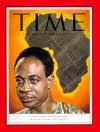There’s a story I know bout how the spaces between de diaspora en Mama Afrika are bridged all de time by hadithi.

The hadithi we tell ourselves and others, they’re all we know…….few hours to a year filled with changing faces (in ever mo) quickly evolving spaces (lakini bado pole pole ndio mwendo) en I share with you a hadithi that was given to me in neo-colonial Afrikan style, a story I shared with others for the first time at a vigil last year in Tdot.
Dis story blessed by the elders, pulled from the internet, (but true say transcribed from the mouths of great granmas en griots) and approved with words of caution & mystery still.
A Muganda will never betray the secret of his, hir or her friend.
reminds me of the beginning of that powerful poem by Mukoma wa Ngugi. Recipe: How to become an immigrant and an exile.
 Listen. Do you hear ghosts? Connect them to the sound of a canoe
Listen. Do you hear ghosts? Connect them to the sound of a canoe
on Indian Ocean. Listen to that tape of familiar beats that has weathered
foreign seasons. Sukus found in Salsa. Fela Kuti meets Masekela
in Appalachia. Do not inhale the coal fumes. Hold a memory……
Remember that hadithi? Listen..
THE STORY OF THE FAIRY FOXES
Hapo zamani za kale there was a King of Uganda who wanted to make a Zoo, and he called all his chiefs together and told them to bring animals of every kind from the forests and jungles and swamps
Then he planted a beautiful garden and put cages into it, and people came from all over the country to see it. But the animals were very miserable; night and day they thought of their homes, and they hated having food brought to them instead of hunting for it themselves, and they hated having water brought to them in water-pots instead of drinking it from the deep forest pools, but no one was sorry for them except the King’s dwarf, and he had lived in the jungle and knew their language.

One day when the King was walking in his Zoo and the dwarf was with him, he said:
“Am I not a great King? No one has ever made a Zoo like this before, in which all the animals of the country are collected together.” But the dwarf said:
“All the animals are not here; there is one animal which lives in the Mukono Forest which no chief has brought, because, though it cries all night and everyone hears it, no man has ever seen it. Some people say it is a bat, and some say it is a sloth, and some say it is a fairy fox with wings made of the night mists.”
When the King heard this he said:
“I will not be beaten by any animal; I will go to Mukono and fetch this fairy animal myself.” So he sent for Sekibobo the chief and told him to build a big encampment near the forest, and the men worked night and day till it was finished. Then the King and his whole court went to Mukono.
For three months the King lived in the encampment, and every night he went into the forest, but though he heard the fairy foxes crying all round him he never saw one. Sometimes the sound came from above his head, but there was nothing there; and sometimes it came from the ground at his feet, but there was nothing there; and sometimes to the right hand and sometimes to the left, but nothing was there; and the people called them “enjoga,” which means “bullies,” because they teased the King every night.
 At last the time came to return to the capital, and the King sat sadly in his house, and the dwarf sat near him and said:
At last the time came to return to the capital, and the King sat sadly in his house, and the dwarf sat near him and said:
“Why is the King so sad?” And the King answered:
“I am sorry I have no fairy fox for my Zoo, but there is another reason. I have learnt to love the beautiful forests and jungles and the deep glades and shady paths and water pools, and the moonlight nights are never so lovely in the capital as they are in the country, and I am sad that I must leave it all and return.”
Then the dwarf said: “If you are so sad at leaving the country after only three months, how much more sad must the animals be, for this is their home, and in your wonderful Zoo they are only prisoners.”
When the King heard that he was thoughtful and silent for some time, and then he called Sekibobo and said: “Send a messenger quickly to the capital and tell the Katikiro that all the animals in the Zoo are to be sent home, everyone to his own forest or jungle or swamp.” “I will have no more prisoners,” he said.
And now there is a broad road which goes from Kampala to Jinja and passes quite near to the Mukono Forest, and if you go there you will hear the “enjoga “crying in the forest all night, but no one has ever seen them. Some people say they are bats, and some say they are sloths, and some say they are fairy foxes with wings made of the night mists.
reposted from http://digital.library.upenn.edu/women/baskerville/king/king.html, via the healing orality of Afrika.


















